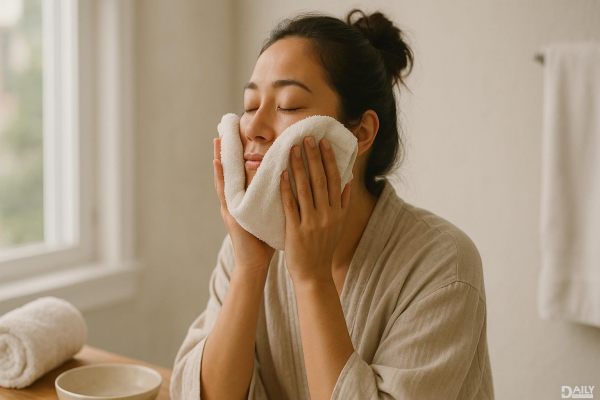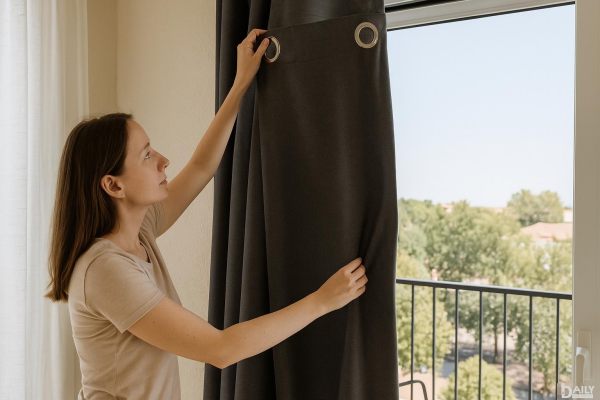If your sleep health has taken a nosedive this year, you're not alone. Between noisy city streets, stress-induced midnight wake-ups, and adorable but disruptive puppies, quality shut-eye can feel like a distant dream. And let's be real—when sleep goes south, everything else follows: mood swings hit harder, headaches linger, and minor inconveniences suddenly feel like full-blown crises. But before you resign yourself to a life of exhaustion, know this—small tweaks to your nighttime routine can make a world of difference.
The Screen-Time Shutdown
Yeah, yeah—you’ve heard it before: "Put down the phone before bed." But Dr. Shelby Harris isn’t just repeating tired advice. Screens emit blue light, which tricks your brain into thinking it’s daytime, suppressing melatonin (the sleep hormone) and making it harder to drift off. The fix? Go analog at least an hour before bedtime. Swap scrolling for a paperback, doodling, or even a low-key puzzle. Dim the lights to signal to your body that it’s wind-down time. If you absolutely must check your phone, enable night mode and keep it brief—but honestly, your group chat can wait till morning.
Creating a Sleep Sanctuary
Your bedroom should be a sleep haven, not a multi-purpose chaos zone. If street noise is the culprit (hello, honking taxis), try a white noise machine or a fan to drown out disruptions. Blackout curtains are a game-changer for city dwellers dealing with blinding streetlights. And if your mattress feels like a medieval torture device? Time for an upgrade. Temperature matters too—aim for a cool 60-67°F (15-19°C). As for your pup’s midnight zoomies? Crate training or a set bedtime for them can help reclaim your REM cycles.
The Midnight Wake-Up Survival Guide
Wide awake at 3 a.m.? Don’t just lie there spiraling about your to-do list. Dr. Harris recommends the 15-minute rule: If you’re still awake after 15 minutes, get up and do something boring in dim light (think: folding laundry or reading a dull textbook). The key? Avoid anything stimulating—no checking emails or diving into a true-crime documentary. When drowsiness creeps back in, return to bed. This trains your brain to associate the bed with sleep, not frustration.
Stress and the Sleep Steal
Anxiety loves to hijack sleep, especially when life feels overwhelming. Combat it with a pre-bed "brain dump": Jot down worries or tomorrow’s tasks in a notebook to clear mental clutter. Breathing exercises (like the 4-7-8 method) can also short-circuit stress. And if your mind races the second your head hits the pillow? Try progressive muscle relaxation—tensing and releasing each muscle group from toes to head. It’s like a lullaby for your nervous system.
The Caffeine and Alcohol Trap
That late-afternoon latte might be sabotaging you more than you think. Caffeine’s half-life is about 5 hours, meaning 50% of it is still in your system by bedtime. Cut off caffeine by 2 p.m. And while nightcaps seem like they help you doze off, alcohol actually disrupts deep sleep, leaving you groggy. Swap evening wine for herbal tea (chamomile or valerian root are sleep-friendly) and hydrate earlier in the day to avoid midnight bathroom trips.
Consistency Is King
Sleep thrives on routine—even on weekends. Waking up at wildly different times confuses your internal clock (aka circadian rhythm). Pick a realistic bedtime and wake-up window, and stick to it within an hour. Yes, sleeping in on Saturday is tempting, but your Monday self will thank you for resisting. Pro tip: Morning sunlight exposure helps regulate your rhythm, so take that puppy for an early walk and soak up some rays.
Better sleep isn’t about perfection—it’s about progress. Some nights will still be rough (looking at you, teething puppies), but these tweaks stack up over time. Start small, stay patient, and remember: Even insomniacs can reclaim their rest.
























